Tomatoes growing in the crypt
There are many unusual things in this household. Let's start with the fact that the business partners of the greenhouse complex are a cybernetician and a pianist.

Pavlo Drobyshev, a resident of Kyiv, got involved in the agricultural business in the early 2000s, when he bought shares of JSC APG "Zakarpatskyi Sad". On the basis of this enterprise, he produced cognac for some time, and a few years ago he decided to set up greenhouses on the company's land.
Darya Novgorodkina, a graduate of the Academy of Culture and Arts, became interested and fascinated with agriculture after meeting Pavel in 2009. Now her task is to control that the production processes for growing vegetables take place "as per the notes".
To the agro-industrial group Agro Glory Time includes a number of enterprises. The main one is Zakarpatskyi Sad OJSC, and the one responsible for the greenhouse direction is Sevlyushfutz LLC. Both are located in Koroleve village of Berehiv district. The owners started the greenhouse project in 2019: they created a business plan, brought iron to the open field and started welding the structures.
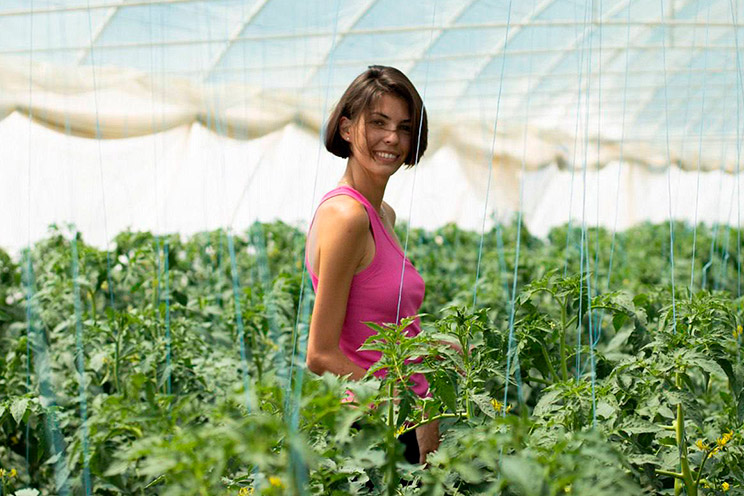
"We didn't try to be original," Darya says, "we built greenhouses similar to those that are common in this area." Constructions of the first stage occupied 1 ha, the second - 0,5 ha. The first are simpler, the second are improved and equipped with automatic control. The system is programmed for a certain temperature and wind speed. If the sensors record unacceptable values for the plants, a command is sent to close or open the transoms. Or to inject air between two films to form an insulating cushion.
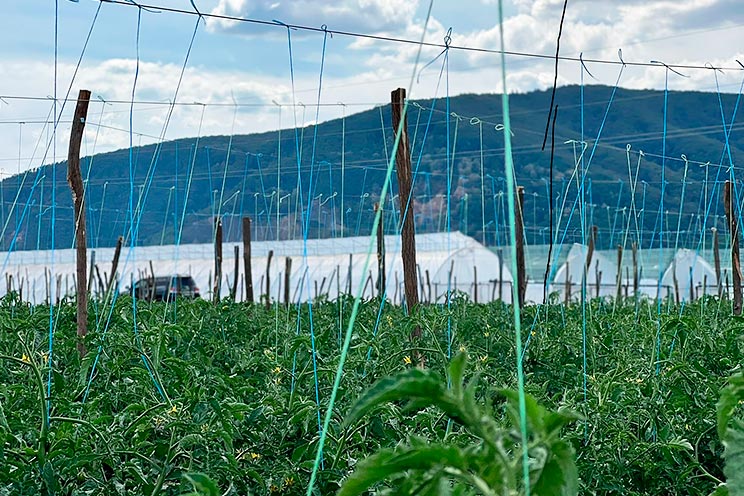
The system is connected to Wi-Fi, so the data can be monitored and the process controlled remotely. Such greenhouses are more expensive, but in this way we minimize the risks of sudden crop loss."
Two crops were selected - cucumbers and tomatoes, which are most in demand on the market. They are grown in two turns. To prolong the autumn harvest, there is a boiler room equipped with three boilers with a capacity of 1 kW each.
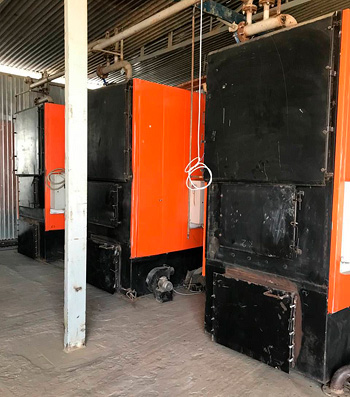
"We didn't invent the bicycle in growing technology either," Darya continues. — Of course, at first they analyzed foreign experience, but decided to rely on what was accumulated in the region. It is about the combination, on the one hand, of foreign technologies that came to Ukraine together with foreign hybrids, and on the other hand, with observations and skills determined by the local climate and soil. They adapted to something, adapted something to themselves. Well, the first word, of course, was and is with the specialists we bring in - agronomists, specialists in the installation of greenhouses, heating, etc."
Next to the developed area near the village of Koroleve flows the full-flowing Tisza. This makes water problems impossible and makes business more attractive. Wells are used for drip irrigation. The soil for growing in greenhouses is natural. The analysis, including ecological, showed that it is quite suitable for growing vegetables, even organically.
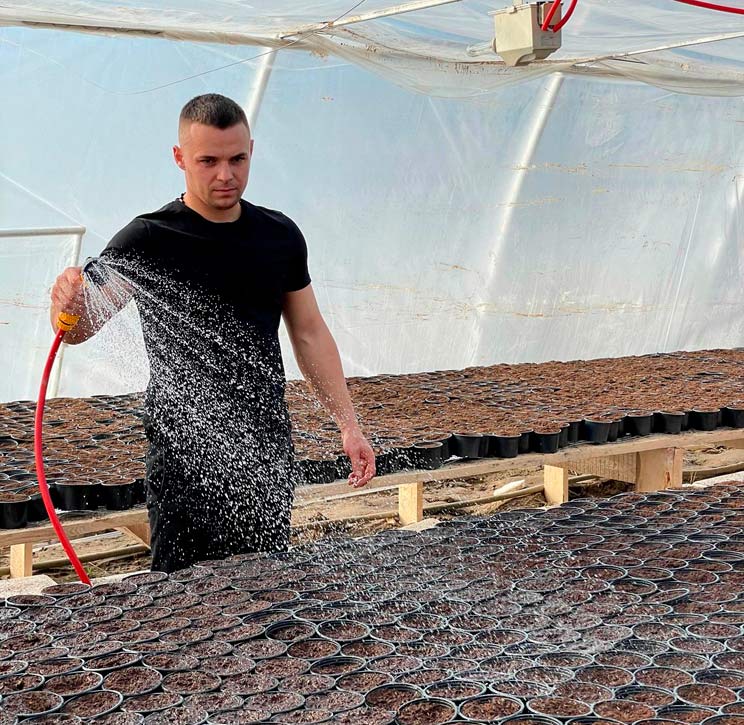
Growing vegetables began in March 2021. That is, this year the owners are harvesting the second full harvest. In the first decade of August, during our visits to the complex, cucumbers were being actively harvested in some greenhouses, while tomatoes were reaching for the sun and growing fat in others.
Two young agronomists from the Kherson region take care of the vegetables. Due to military operations, they were forced to end up in Transcarpathia. Since then, the experience gained in the South has been transferred to the Western region.
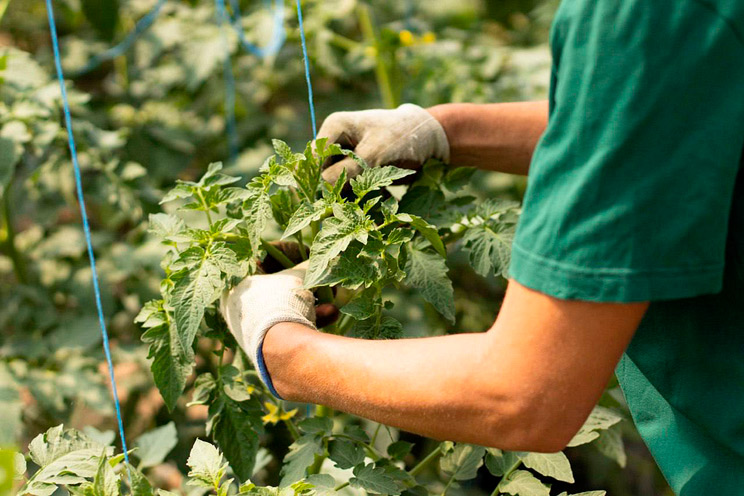
"The location of Kherson Oblast has made it a leader in growing vegetables. But Transcarpathia also has considerable potential, its climatic features are suitable for cultivation in both open and closed soil, says agronomist Ihor Gordovyi from Kakhovka. — Once upon a time, only cabbage, potatoes and sweet peppers were grown here, and today even watermelons. Such large complexes as in Korolev are interesting because they become indicative for the region. Small manufacturers are starting to focus on them — on quality, manufacturability. Recent political events will undoubtedly accelerate the development of vegetable growing in this region. After all, there is a demand. Farmers are attracted by new opportunities. Besides, Europe is close, you can export."
Climatic features of Transcarpathia became an experience for agronomists themselves. In the West, the soils are acidic, which vegetables do not like. In contrast to Kherson, enormous temperature differences are recorded here during the day and at night. Abundant dews after cool nights provoke diseases. During the day, it is necessary to save from the scorching sun, so that the root does not overheat, the flowers do not get sterilized, and the fruits and leaves do not get damaged.
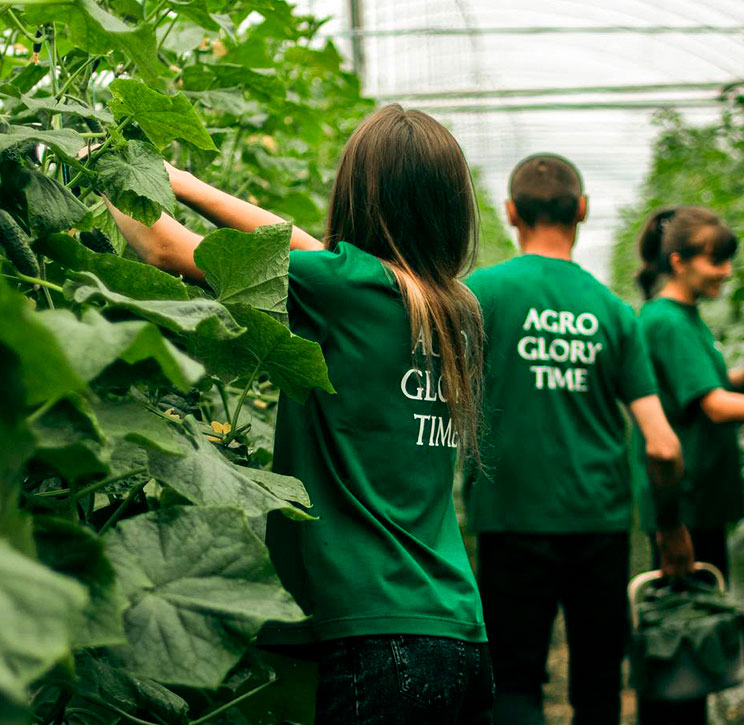
"The green shading net that you see on greenhouses is capable of lowering the temperature by up to five degrees," notes Igor. — At the same time, the shading area should not exceed 40%, because the plants perceive the green object as a competitor and, when they reach for the sun, the internodes become larger. It does not affect the size of the crop, but the return period is delayed. The best option is to whitewash the walls of the structure, which you can also see here. It is held until the end of May, otherwise the extreme rows may begin to dry."
This season, the managers of the vegetable project also ventured to grow cucumbers and tomatoes in open ground. Planting was done on an area of more than 2 hectares.
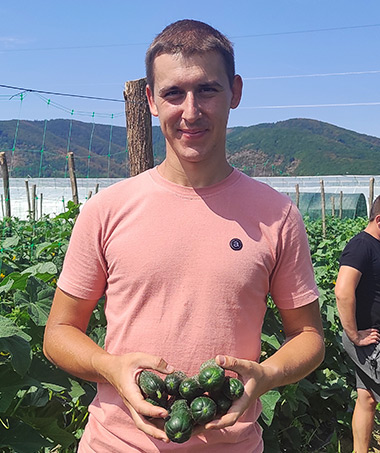
"You can say that this is an experiment. The same hybrids were planted in the open air as in the greenhouse, says the second agronomist from Kherson, Roman Rudenko. — Cucumber hybrid Neylin F1 from the company Nunhems in unprotected soil shows itself no worse than the one in the greenhouse. The fruits are smooth, deep green in color, with a good thorn. You won't immediately say that they are grown in the field. Of course, it is necessary to monitor the state of plantings more carefully due to large temperature differences - it is hot during the day and cool at night."
So far it works - the sheet is clean, not a speck! But without spraying, which can reach 12-16 in a season, it would be impossible to achieve this. The support for cucumbers in the field is arranged according to the Hungarian type: a net is attached to high wooden chips. Plants are placed at intervals of 30 cm, between rows of 2 m. The ground is mulched with a black film. Drip irrigation.
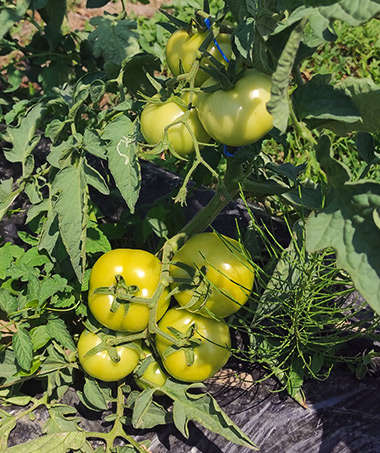
Among the tomato hybrids, indeterminate red Boderin F1 from Syngenta and Bulz F1 from the Turkish company Yuksel were selected, as well as semi-determinant with large pink fruits Macan F1 from Clause, which is cultivated in the second rotation.
Boderin F1 was planted in the field, using the seedlings that remained after planting in the greenhouse. And he seems to be doing well there. Fruits are filled with juice and are about to start to take on color. While 7–8 tassels are expected from the greenhouse ones, only 3–4 will please the field ones, and therefore the harvest will be smaller, but this is justified, because the field requires less attention and costs.
Products are sold to wholesalers and local retail chains.
"There are no problems with sales. Even about export, which we were set on from the very beginning, there is no question yet, because there is a great demand in the domestic market, and the price completely satisfies us - a minimum of 10 hryvnias for a cucumber, 20–25 hryvnias for a tomato, - the manager assesses the situation project of Darya Novgorodkin. — However, any business is worth something when it develops.
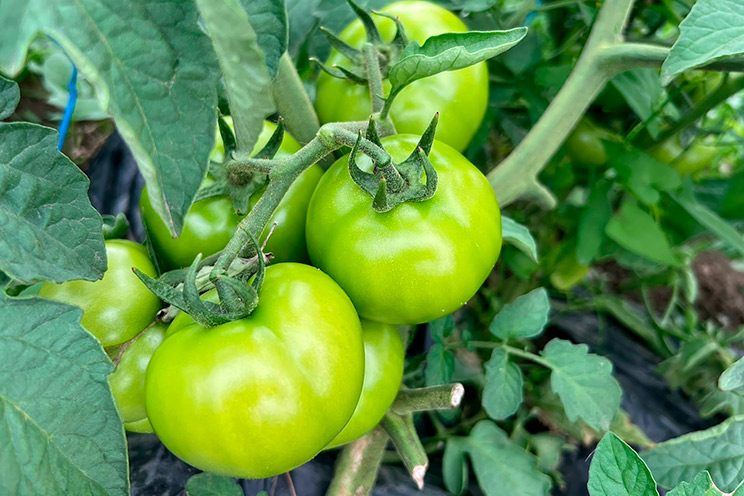
According to the act on the right to permanent use of land, which "Zakarpatsky Sad" has owned since 1997 as the legal successor of the Shevchenko state farm-factory, we have more than 2 thousand hectares of land at our disposal. And so, we can plan for significant scaling. Currently, components for the third phase of greenhouses have been delivered. Ideally, the area of our greenhouse complex can reach 800 hectares."
"In order to put the planned greenhouse facilities into operation and to be able to pay for seeds, fertilizers, drugs, fuel, and the work of employees every year, we need investments," continues Daria. - And Pavlo found a way to accumulate them - through a crypto project, or rather, tokenization. Investors from different countries have appeared who understand and are interested in this. As a result, their reward will be dividends in cryptocurrency, which they will transfer to their national currency if necessary."
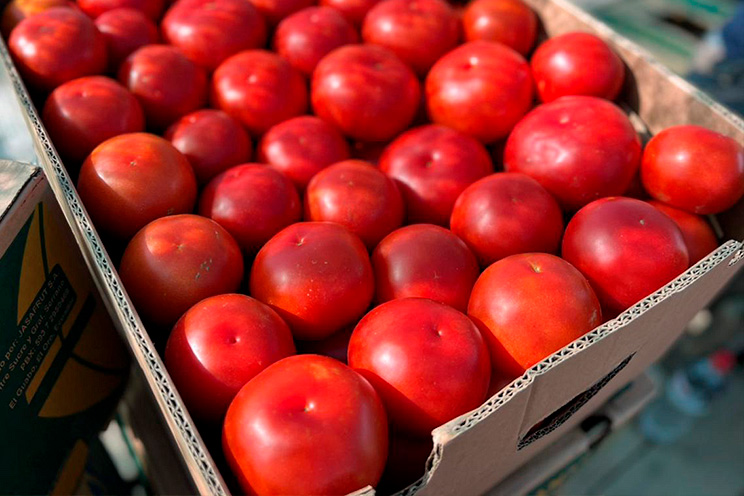
Despite the fact that some countries have already switched to payments for securities, goods and services in cryptocurrency, and the crypto wallet has become a reliable way to transfer funds between countries to bypass banks and sanctions, digital money still seems like a game to many people around the world, because it cannot be touched . However, they exist, have occupied their niche, are used, and the most popular ones, such as Bitcoin and Ethereum, are constantly growing in price.
"Everything is changing in the world. We try to be one step ahead, although we are not the first in the world to start investing in the real sector of the economy through crypto projects. But they are the first to do it through tokens," says Pavlo Drobyshev, the initiator of the seamless agribusiness investment system.
Currently, more than 19 cryptocurrencies have been created in the digital world. Company Agro Glory Time, for example, chose the digital currency Tether (USDT) for its project, which is among the top ten and always corresponds to the value of the US dollar.
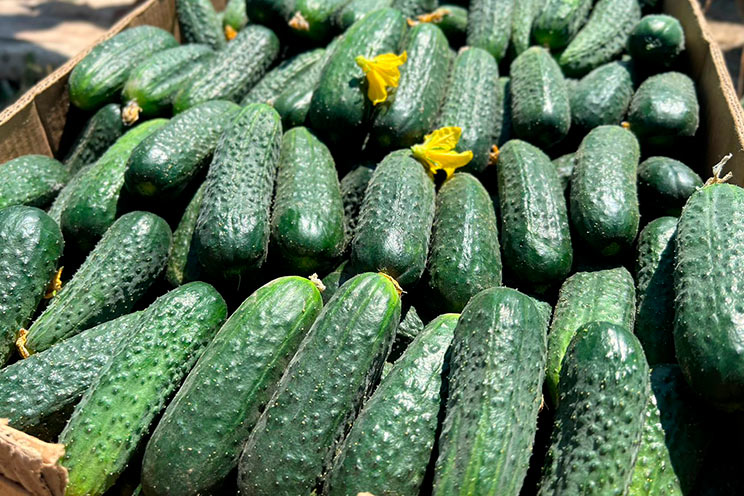
Tokens have been created on the platforms of some cryptocurrencies. One of them is the 2022 token AGTI (abbreviation made up of the first letters of the company name). This is a completely Ukrainian product, created by scientists of the Faculty of Cybernetics of KNU named after Shevchenko.
A token differs from a cryptocurrency in that it does not have a personal platform (blockchain) and is not money as such, but rather is a digital receipt from the owner of the token in that he has the right to certain objects and commits you to something to provide The full rationale and mechanism for purchasing the token is outlined on the company's website sevlushfoods.com, as well as in the Telegram channel Agro Glory Time, where constant reports are given on both the production processes and the tokenization itself.
According to information from Pavel Drobyshev, the assets of the open joint-stock company "Zakarpatsky Sad", including the land resource and the production facilities available in the company, as of July 2022 amount to 50 million dollars, the number of shares - 160 million. Actions Agro Glory Time are in public circulation and it is they that support the token AGTI. Based on this, 1 billion tokens were created AGTI with a starting cost of $0,05. Whoever buys them becomes an investor in the company with the right to dividends.
The growth of the company's capitalization from the sale of tokens and the scaling of real production activities automatically increase the value of the tokens. So the earlier the investment is made, the more profitable it is. In addition, according to Pavlo, a certain number of tokens will be able to be exchanged for shares of OJSC APG "Zakarpatskyi Sad".
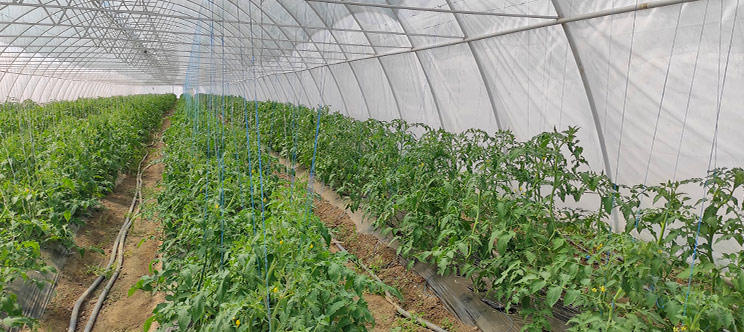
"People like not only to invest in the project, but also to watch through our website and Telegram channel how their investments turn into real greenhouses and real cucumbers and tomatoes," Pavlo shares his observations. — For us, the advantage of such a system is that we can refuse bank loans, because once upon our own experience, while producing cognac, we felt how burdensome and risky credit-collateral relations with the bank are. Relationships with investors through crypto-mechanisms enable direct investment and completely eliminate banks as intermediaries. The purity of the operation is monitored by a decentralized cryptosystem. The issue of tokens will be verified and registered with the US Securities and Exchange Commission, and international lawyers are currently preparing authorization documents for this institution. This will increase the attractiveness of our token to the crypto market of the world. For our part, we are sure that we are on the right path, because such investment, supported by real production, has great prospects in today's world. Those who have already purchased our tokens will receive their "harvest" in the form of cryptocurrency dividends in the fall."

